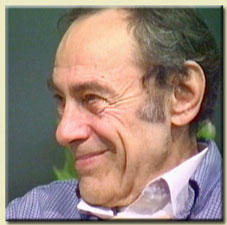John Locke Quotes - Page 3

John Locke, Ruth Weissbourd Grant, Nathan Tarcov (1996). “Some Thoughts Concerning Education: And, Of the Conduct of the Understanding”, Hackett Publishing
Firmness or stiffness of the mind is not from adherence to truth, but submission to prejudice.
John Locke (1828). “An essay concerning human understanding ... The twentieth edition, etc”, p.560
John Locke (1819). “An essay concerning human understanding. Also, extr. from the author's works, i. Analysis of mr. Locke's doctrine of ideas [&c.].”, p.314
Good and evil, reward and punishment, are the only motives to a rational creature
Some Thoughts Concerning Education sec. 54 (1693)
There are a thousand ways to Wealth, but only one way to Heaven.
John Locke (2012). “The Second Treatise of Government and A Letter Concerning Toleration”, p.153, Courier Corporation
John Locke (2016). “Second Treatise of Government and a Letter Concerning Toleration”, p.103, Oxford University Press
John Locke (2012). “The Second Treatise of Government and A Letter Concerning Toleration”, p.126, Courier Corporation
John Locke (1821). “Two Treatises on Government”, p.221
John Locke (1693). “Some Thoughts Concerning Education”, p.64
"The works of John Locke. To which is added the life of the author and a collection of several of his pieces, publ. by mr. Desmaizeaux".
Knowledge is grateful to the understanding, as light to the eyes.
John Locke (1778). “Some Thoughts Concerning Education”, p.178
John Locke (1824). “The Works of John Locke: In Nine Volumes”, p.317
John Locke, John Milton (1830). “Some thoughts concerning education”, p.296
John Locke, Ruth Weissbourd Grant, Nathan Tarcov (1996). “Some Thoughts Concerning Education: And, Of the Conduct of the Understanding”, Hackett Publishing
John Locke (1825). “An Essay Concerning Human Understanding: An analysis of Mr. Locke's Doctrine of ideas .... A defense of Mr. Locke's Opinion concerning personal identity .... A treatise on the conduct of the understanding. Some thoughts concerning reading and study for a gentleman. Elements of natural philosophy. A new method of a common place book. Extracted from the author's works. With a life of the author”
God is the place of spirits, as spaces are the places of bodies.
John Locke (1706). “Posthumous Works of Mr. John Locke ...”, p.160
John Locke (1828). “An Essay Concerning Human Understanding: To which are Now First Added, I. An Analysis of Mr. Locke's Doctrine of Ideas, on a Large Sheet. II. A Defence of Mr. Locke's Opinion Concerning Personal Identity, with an Appendix. III. A Treatise on the Conduct of the Understanding. IV. Some Thoughts Concerning Reading and Study for a Gentleman. V. Elements of Natural Philosophy. VI. A New Method of a Common Place-book Extracted from the Author's Works”, p.35
Consciousness is the perception of what passes in man's own mind.
John Locke (1836). “An Essay Concerning Human Understanding”, p.59
He that uses his words loosely and unsteadily will either not be minded or not understood.
John Locke (1836). “An Essay Concerning Human Understanding”, p.371
"Some Thoughts Concerning Education" by John Locke, (Sec. 95), 1693.






